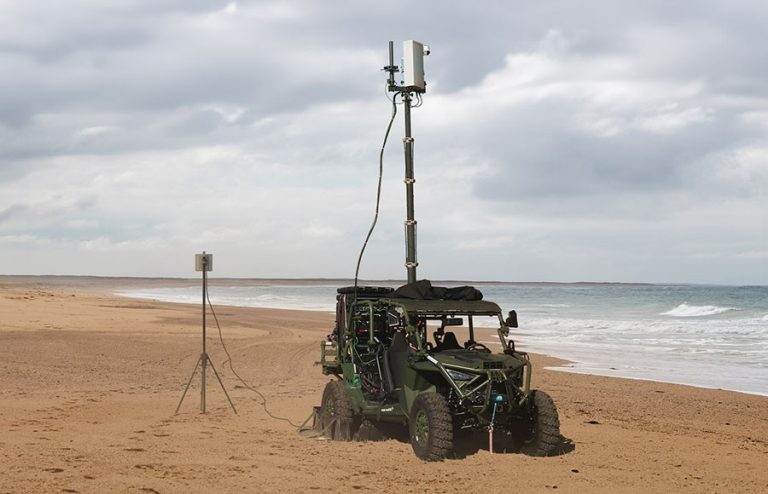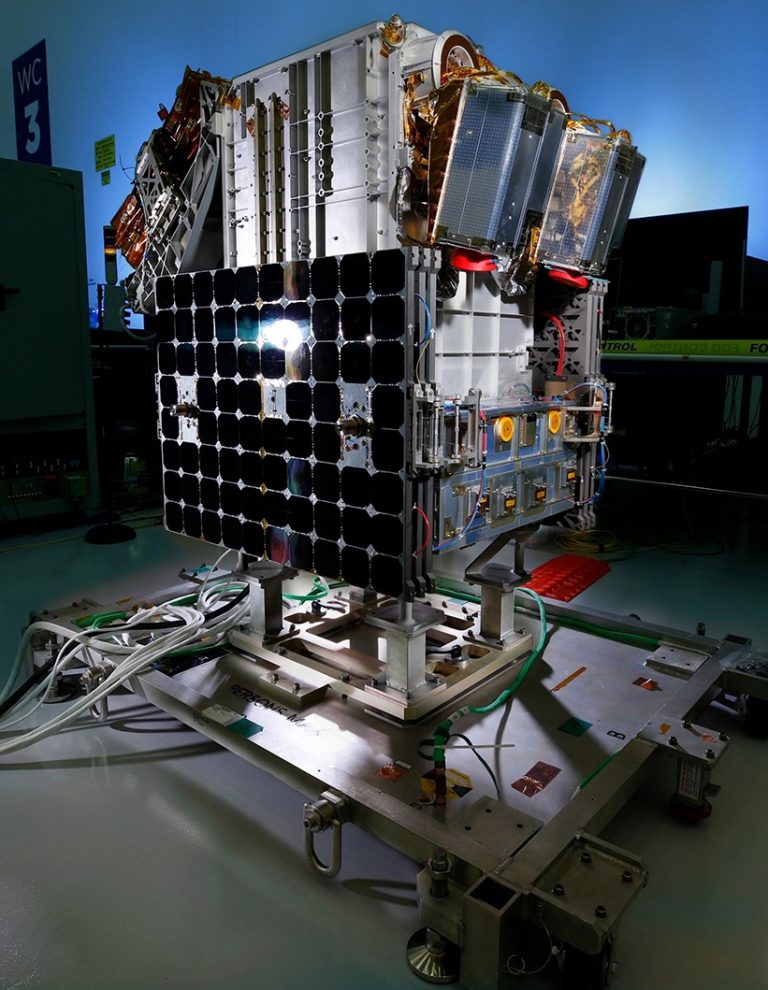For the first time, Lockheed Martin demonstrated its Hybrid 5G-Tactical Mesh Network live in a multi-domain environment — a significant step toward ensuring the Department of Defense has seamless access to critical information.
Lockheed Martin’s 5G.MIL® Unified Network Solutions provide cohesive communications, edge processing and advanced networking capabilities for interoperable, resilient and secure connectivity and data flow across all domains. 5G.MIL solutions leverage open systems architecture, tactical gateways and enhanced commercial technologies to enable converged hybrid networks. The result: our customers have seamless access to the critical information they need to always stay ahead of ready.
Why It Matters
Next generation (Next G) communication systems bring more reliable, higher throughput and ultra-low-latency connectivity required for edge devices and platforms, like autonomous systems, to fully harness the power of artificial intelligence (AI). By integrating these systems with existing military communications and datalinks, forces can achieve more effective operations in communications-contested and denied environments and have access to data to perform their missions anywhere in the world.
Leveraging its extensive industry experience, deep mission expertise and strategic commercial relationships, Lockheed Martin is positioned to help its customers field, scale and deploy this technology rapidly and affordably across all operations in all domains.
Creating ubiquitous communications with a global heterogenous network-of-networks drives mission processing and operational decisions to the edge, reducing decision timelines for countering rising global threats. Heterogenous 5G-enabled networks also bolster resilience by reducing single points of failure while embracing datalink diversity to provide multiple pathways for critical information transmission.
Lockheed Martin is enhancing commercially available 5G and Next G technology with military-grade network and transmission security features while leveraging the global reach of commercial infrastructure to expand access to a worldwide network.
Our 5G.MIL® Program Pillars
Building Network Cohesion: In the 21st century battlespace, dominance will be determined by the ability to bring together high-tech platforms into one cohesive network that spans every domain – air, land, sea, space and cyber. When this network communicates and analyzes data seamlessly, it
represents a force multiplier that is flexible, formidable and decisive. Learn about Lockheed Martin & Juniper Networks’ Mission-Aware Routing SD-WAN Collaboration.
Resilient Communications: The 5G.MIL system is a robust 5G-enabled heterogenous “network of networks” integrating all warfighting domains across military tactical, strategic and enterprise networks, leveraging commercial telecommunication infrastructure technology. Intelligent orchestration, data management and redundancy provide the operational agility required to maintain communications in contested environments. Learn about Lockheed Martin HiveStar™ technology.
Integrating Existing Networks: Using multiple, distributed edge-connected gateways between legacy tactical networks, information can move through different pathways among platforms. Resilience is created by eliminating high-value single points of failure in the system. Learn about Lockheed Martin Project Hydra.
Combating Threats: Lockheed Martin’s 21st Century Security (21CS) strategy is designed to help our customers leverage emerging technologies –AI, edge computing and 5G.MIL connectivity – to connect all assets seamlessly and securely in the joint battlespace for unparalleled situational awareness to enable decisive action. Learn about Lockheed Martin and Verizon’s 5G-Powered ISR Demonstration.
Collaborating with Academia and Industry
A key element of our 21st Century Security strategy is to collaborate with innovative commercial companies, both large and small, as well as leading traditional aerospace & defense tech players and top academic institutions, to integrate their technologies for military use case applications.
Technologies such as 5G, AI, distributed cloud computing and autonomy are key enablers for advanced Joint All-Domain Command and Control (JADC2) applications. The commercial tech industry is leading the world in these technologies, and we want to collaborate with them to bring these capabilities into the defense realm. The future of defense innovation will be a combination of commercial and government-driven technology, large and small company innovation and academic research. Our goal is a combination of the best available technologies to keep the U.S. out in front of its adversaries.
Our team has identified several areas where we are working with commercial collaborators to improve 5G and Next G security, resilience, interoperability and performance specific to Department of Defense (DOD) needs and requirements. Some of these relationships have been publicly announced, including our work with Verizon, Microsoft, Intel and Juniper Networks. Other strategic relationships with leading large and small businesses who are at the forefront of communications and networking technology development are also in place.
Our approach recognizes that multi-vendor network operations and multi-cloud integration will be required. Our strategic relationships establish key team members that we work with closely to develop scalable solutions, while our open system, standards-based approach is designed for inclusion of complementary industry solutions as well.












